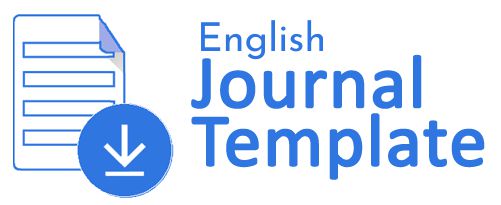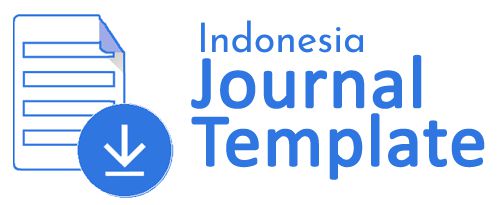Islamic Education Policy in Improving Access to Education for Marginalized Communities in Indonesia
Kebijakan Pendidikan Islam dalam Meningkatkan Akses Pendidikan bagi Masyarakat Marjinal di Indonesia
DOI:
https://doi.org/10.64344/fydh.v1i1.9Keywords:
Policy; Islamic Education; Access; Marginalized Communities; IndonesiaAbstract
Access to education for marginalized communities in Indonesia still faces various geographical, economic, and social barriers. This research aims to analyze how Islamic education policy plays a role in improving access to education for marginalized groups, especially through Islamic education institutions such as madrasah and Islamic boarding schools. This research uses a qualitative approach with a literature review method that examines various secondary sources from journals, policy reports, and relevant official data. The results show that Islamic education policy has made a real contribution in expanding the reach of education in the 3T areas (underdeveloped, frontier, and outermost). Madrasahs and pesantren have become an alternative education that is easily accessible to marginalized communities, especially because they are located in remote areas. In addition, government programs such as the School Operational Assistance (BOS) and the Smart Indonesia Program (PIP) also support the continuation of education for children from underprivileged families. However, there are still inequalities in the quality of education and facilities available in Islamic education institutions in remote areas. Therefore, in addition to expanding access, future policies need to focus on improving the quality of education equally.
References
Aldi, Muhammad, Fatimah Azzahra, Muhammad Aminullah, and Samsul Susilawati. 2025. “Optimizing the Learning Process through Theory-Based Media Selection: Constructivist, Cognitive, Collaborative, and Motivational Perspectives.” Electronic Journal of Education, Social Economics and Technology 6(1).
Aldi, Muhammad, and Ahmad Barizi. 2025. “Filsafat Ilmu Dalam Perspektif Budaya Alam Minangkabau: Membangun Kearifan Lokal Untuk Pengembangan Pengetahuan.” Teaching and Learning Journal of Mandalika (Teacher) e-ISSN 2721-9666 6(1):212–21.
Aldi, Muhammad, and Akhmad Nurul Kawakib. 2025. “Reconstruction of Islamic Education Philosophy in Minangkabau Customary Values: Actualizing the Principles of Adat Basandi Syarak, Syarak Basandi Kitabullah.” JIIP-Jurnal Ilmiah Ilmu Pendidikan 8(2):1548–57.
Aldi, Muhammad, and Retisfa Khairanis. 2024. “The Synergy of Religion and Malay Culture in Improving the Empowerment of Islamic Communities Towards Achieving SDGS.” PERADA 7(2).
Aldi, Muhammad, and Moh Toriquddin. 2025. “History of Thought Syuhudi Ismail: A Study of Textual and Contextual Analysis of Prophetic Hadiths.” J-CEKI: Jurnal Cendekia Ilmiah 4(2):1723–32.
Chen, Keren, Shenghan Zhao, Gaozhe Jiang, Yafeng He, and Hui Li. 2025. “The Green Innovation Effect of the Digital Economy.” International Review of Economics & Finance 99:103970.
Khairanis, Retisfa, and Istiadah Istiadah. 2025. “The Impact of Post-Potivism and Constructivism on Public Policy: A Review of Philosophy of Science in Indonesia.” J-CEKI: Jurnal Cendekia Ilmiah 4(2):2101–8.
Khairanis, Retisfa, Ahmad Kholil, and Wildana Wargadinata. 2025. “Political Dynamics of the Mughal Empire: An Integrated Historical Analysis.” J-CEKI: Jurnal Cendekia Ilmiah 4(2):1907–17.
Khairanis, Retisfa, Neli Putri, and Rahmat Satria Dinata. 2023. “The Correlation Between Grammar Mastery And Reading Ability.” Pp. 554–64 in.
Kusumastuti, Adhi, and Ahmad Mustamil Khoiron. 2019. Metode Penelitian Kualitatif. Lembaga Pendidikan Sukarno Pressindo (LPSP).
Liu, Shiyu, Jingru Ma, Meichen Sun, Chao Zhang, Yujing Gao, and Jinghong Xu. 2025. “Mapping the Landscape of Digital Health Intervention Strategies: 25-Year Synthesis.” Journal of Medical Internet Research 27:e59027.
Luo, Qi, Lisha Deng, Zeming Zhang, and Hao Wang. 2025. “The Impact of Digital Transformation on Green Innovation: Novel Evidence from Firm Resilience Perspective.” Finance Research Letters 74:106767.
Luthfi, Atabik. 2025. “DYNAMICS OF ISLAMIC STUDIES IN THE DIGITAL ERA BETWEEN CHALLENGES AND OPPORTUNITIES.” Al-Risalah: Jurnal Studi Agama Dan Pemikiran Islam 16(1):109–18.
Naswa, Naila Hanin. 2025. “Islamic Education Strategies in Strengthening Character Education to Overcome Moral Challenges in the Digital Era.” Solo Universal Journal of Islamic Education and Multiculturalism 3(01):93–104.
Wang, Shaofeng, and Hao Zhang. 2025. “Digital Transformation and Innovation Performance in Small-and Medium-Sized Enterprises: A Systems Perspective on the Interplay of Digital Adoption, Digital Drive, and Digital Culture.” Systems 13(1):43.
Wang, Xiangyang, Zhiyi Liu, and Xuefei Lei. 2025. “How Digital Orientation Promotes Digital Process Innovation from the Perspectives of Knowledge and Capability: Evidence from China.” Journal of Knowledge Management 29(1):259–80.
Downloads
Published
Issue
Section
License
Copyright (c) 2025 Retisfa Khairanis, Muhammad Aldi (Author)

This work is licensed under a Creative Commons Attribution-NonCommercial-ShareAlike 4.0 International License.







